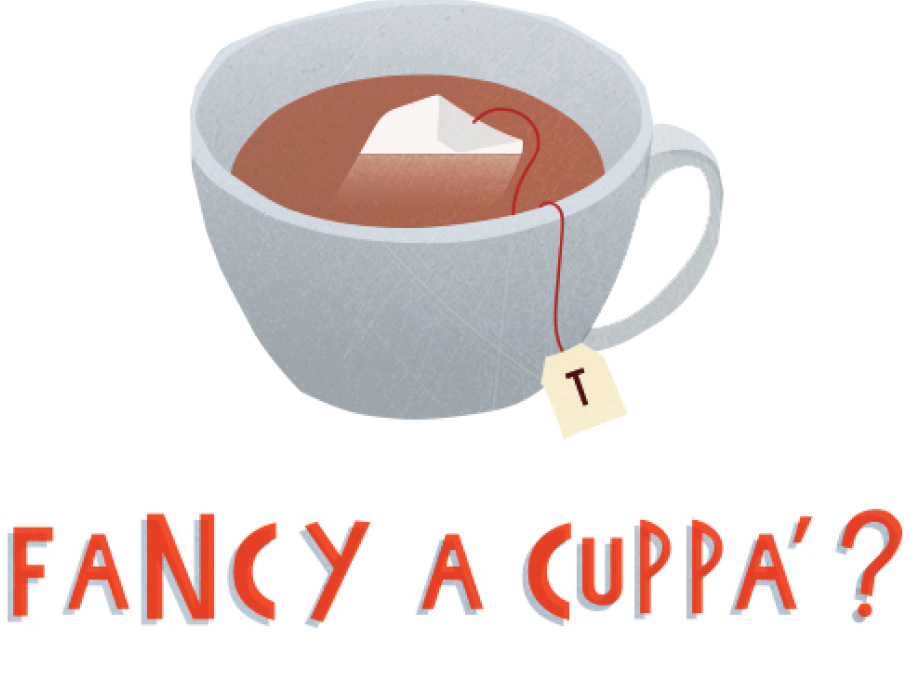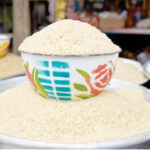Although British English is the “mother” that birthed all varieties of English, not every British English expression is standard and universally understood in the English-speaking world. Some expressions are so unique to Britain to that only people who live there understand and use them. Linguists call such expressions Briticisms, Britishisms or Anglicisms.
Below is a fascinating compilation by Evening Standard’s Bobby Edsor of 88 uniquely British English expressions. The article was originally titled “88 very British phrases that will confuse anybody who didn’t grow up in the UK” and published on November 15. Enjoy:
Every language has a few phrases that don’t always translate well – and the British English has some absolute corkers.
Our team has compiled a list of the best British slang and idioms that define the weird and wonderful British dialect we grew up with.
From our linguistic research, we’ve confirmed that above all, British people can be sarcastic, unsympathetic, and often rather drunk.
Each term is partnered with a description and example. Some entries also feature surprising facts about the phrase’s origins, with a few quintessentially British idioms not actually coming from British roots at all.
Whether you think this list is the “bee’s knees” or if it’s enough to make you want to “pop your clogs,” scroll on to discover 88 very British phrases – in alphabetical order – that will confuse anybody who didn’t grow up in the UK.
“A few sandwiches short of a picnic”: Someone that lacks common sense might be described as “a few sandwiches short of a picnic.” The phrase was first documented in the BBC’s “Lenny Henry Christmas Special” in 1987. “She’s great fun, but she’s a few sandwiches short of a picnic.”
“Anorak”: Although it’s more often used as a synonym for raincoat, an anorak is something slightly different in playground slang. Someone that’s a little bit geeky, with strong interests or expertise in a niche area, might be referred to as an “anorak.” This probably originates from the “uncool” appearance of anorak coats and the people wearing them.
“Thomas is such an anorak when it comes to train trivia.”
“Bagsy”: Calling “bagsy” is the equivalent of calling “shotgun” or “dibs” when something, like the front seat of the car, is offered up to a group.
Schoolkids might call “bagsy” on items from their friends’ pack lunches, like an apple or a cereal bar, that the friend isn’t going to eat.
“Does anyone want thi-”
“Bagsy!”
“Bee’s knees”: This phrase became mainstream in the USA in the 1920s despite its British origins, but its popularity in the States has dwindled since the turn of the century. The “bee’s knees” referred to small or insignificant details when it was first documented in the 18th century. Since then, the phrase has evolved and refers to something at the “height of cool.”
“The Beatles are the bee’s knees.”
“Bender”: Someone on a spree of excessive drinking and mischief is “on a bender.”
Benders often last over 24 hours, and so you might say that someone is on “a weekend bender,” or a “three-day bender.”
“I bumped into him towards the end of his four-day bender. He was a wreck.”
“Blinder”: To “pull a blinder” involves achieving something difficult faultlessly and skilfully.
The phrase is most commonly used when the individual has been lucky and the person saying it is in disbelief that the first person has managed to pull it off.
“And did you see that equalising goal in the last minute of injury time? He pulled a blinder there.”
“Bloody or “Bleeding”: This intensifier can be added to practically any sentence in order to demonstrate incredulity or anger. Some people consider “bloody” offensive (the origins of the word are widely disputed, so we can’t be sure why) and it was considered a profanity until the mid-20th century.
The origins of the word are widely disputed. Some believe it’s derived from the Dutch word “blute,” meaning “bare.” Others believe the word is a contraction of the 17th century phrase “by our lady,” and is blasphemous. This second theory has been disproved, however, by the slang’s documentation predating the popularity of the phrase “by our lady.”
Nowadays, “bloody” is used widely – it’s even used in children’s films such as “Harry Potter” – and is arguably one of the most quintessentially British words on the list.
“That was bloody good.”
“Bob’s your uncle”: The very British equivalent to “Hey presto!” or “Et voila!” This phrase is used to describe a process which seems more difficult than it actually is.
“Press down the clutch, put it into gear, then slowly ease off the clutch again. Bob’s your uncle – you’re driving!”
“Bog-standard”: Something that is “bog-standard” is completely ordinary with no frills, embellishments, or add-ons.
Its origins are somewhat unclear, but a “bog” is another word for a toilet in British slang, adding to the connotations that something “bog-standard” is unglamorous and unspecial.
“How was the hostel?” “Oh, nothing exciting to report. Just your bog-standard dorm, really.”
“Boot”: The “boot” is the compartment at the back of the car known as the “trunk” in American English.
“Shove the shopping in the boot.”
“Botch job”: A repair job that’s been completed in a hurry and will probably fall apart reasonably soon is considered a “botch job.”
“Sam did a botch job on these shelves – they’re wonky!”
“Brolly”: Abbreviation of “umbrella.”
“Grab your brolly, it’s drizzling outside.”
“Budge up”: An informal way of asking someone to make room where they are sitting for you to sit down, too, would be asking them to “budge up.”
It’s similar to “scoot over” or “move over.”
“Hey, there’s loads of room on that bench. Budge up and make some room for us, too!”
“Builder’s tea”: The name of a strongly-brewed cup of English breakfast tea with milk – the way that tea is most commonly drunk in the UK.
It’s common courtesy to offer a labourer or builder working on your house a builder’s tea while they’re working – especially if they’re working out in the cold. This is probably how the term came about.
“A bacon sandwich and a builder’s tea. Now that’s a proper breakfast.”
“Butchers”: “Butcher’s hook” is Cockney rhyming slang for “look.” Therefore, if you’re “having a butchers,” you’re having a look at something.
“Would you take a butchers at this broken bike for me?”
“Cack-handed”: A task performed in an awkward or uncomfortable fashion, usually clumsily, would be described as “cack-handed.”
“Cack” is old-fashioned slang for faeces.
“He handles a screwdriver very cack-handedly.”
“Cheeky”: An act which could be deemed as impolite or shameless, but for some reason comes across as funny or endearing to others, would be described as “cheeky.”
“Joe’s children are absolute rascals – they tied my shoelaces together last week!”
“Those cheeky monkeys.”
“Chinese whispers”: “Chinese whispers” are rumours that have been circulated and watered down until they only vaguely resemble the truth.
The phrase originates from the game “Chinese Whispers” commonly played at children’s parties. A phrase is whispered around a circle and the last person to hear the phrase has to guess what the initial phrase was.
“Simon heard from John that you were fired.”
“What? No. I just had Friday off work.”
“Oh. It must have been Chinese Whispers.”
“Chinwag”: A “good old chinwag” is a good chat, catch up, or gossip with someone. The action of chatting away – with the jaw bobbing up and down – resembles a chin “wagging” like a dog’s tail.
“Those two are having a proper chinwag – I haven’t been able to get a word in edgeways for half an hour!”
“Chockablock”: Something full to the brim, or rammed, could be described as “chockalock.” This is sometimes shortened to “chocka.”
“We should’ve taken the other route. This road is chocka!”
“Chuffed”: Overjoyed; full of pride. “I heard you got the promotion. Congratulations! You must be chuffed.”
“Clanger”: An obvious and indiscreet mistake or blunder. Unrelatedly, “Clangers” was also a children’s TV show from the 1970s about pink mouse-like creatures that lived on the moon. “You dropped a clanger there.”
“Codswallop”: Something untrue – often made up for dramatic effect.
Although no one is completely sure of the word’s origins, it could derive from the words “cod” and “wallop,” which historically meant “imitation” and “beer” respectively – implying that “codswallop” is the kind of rubbish you make up when drunk.
“Oh, what a load of codswallop!”
“Cost a bomb”: Expensive.
“Your watch is gorgeous.”
“I should hope so, it cost a bomb.”
To be continued




